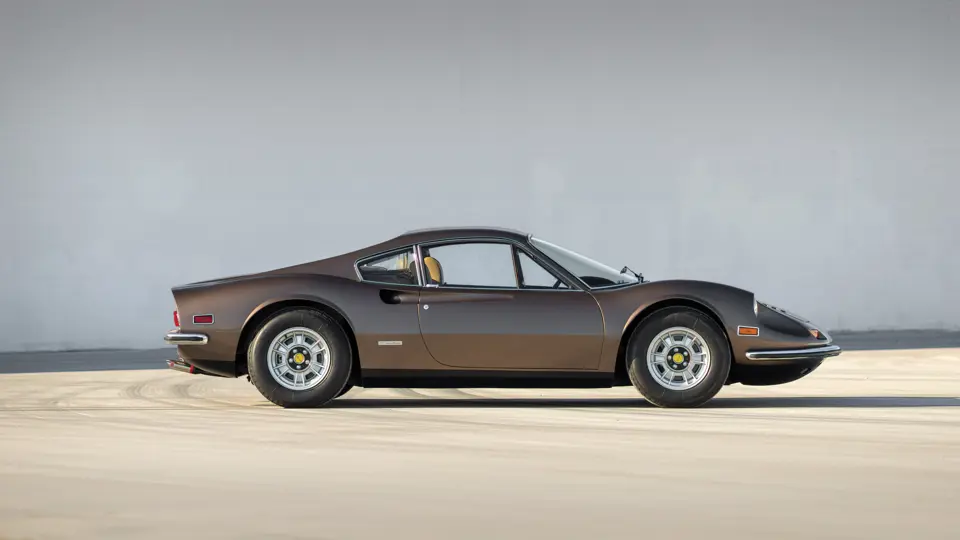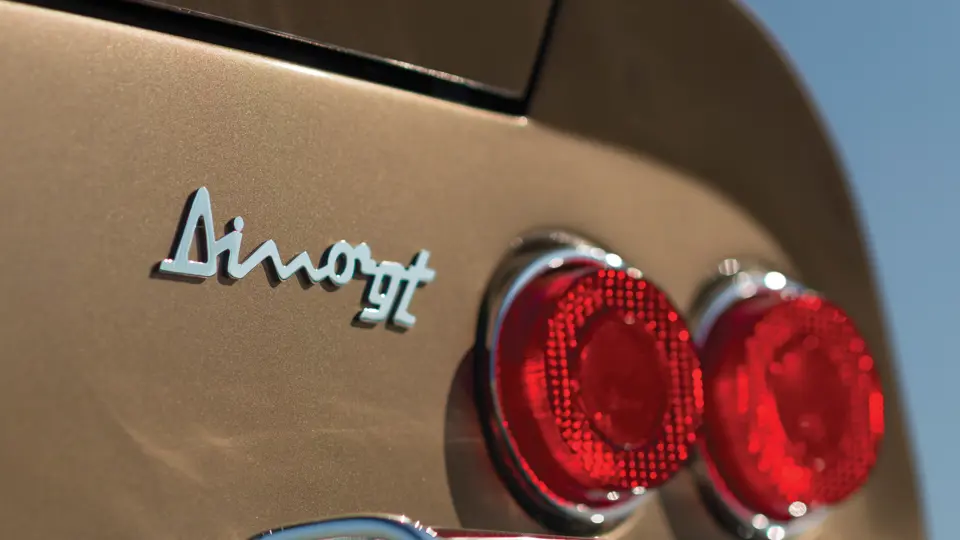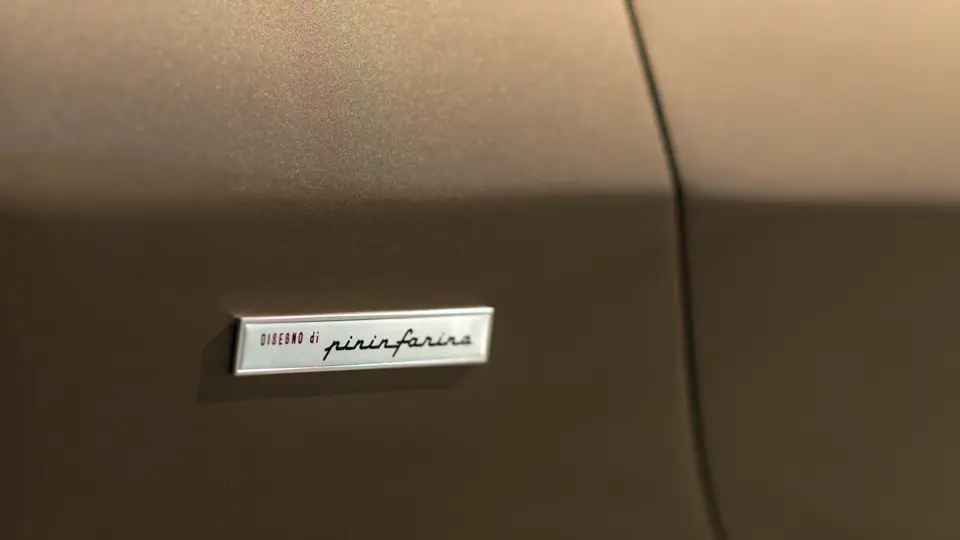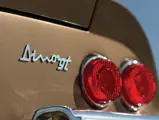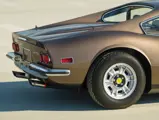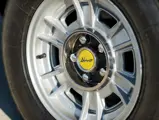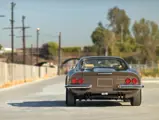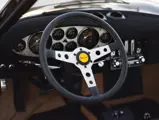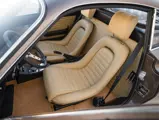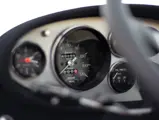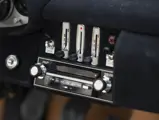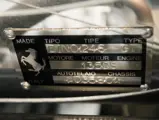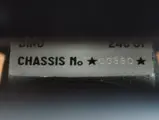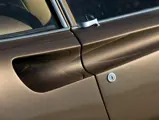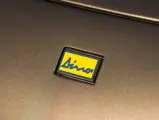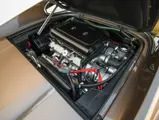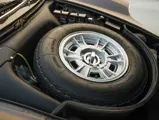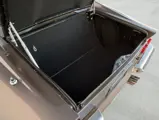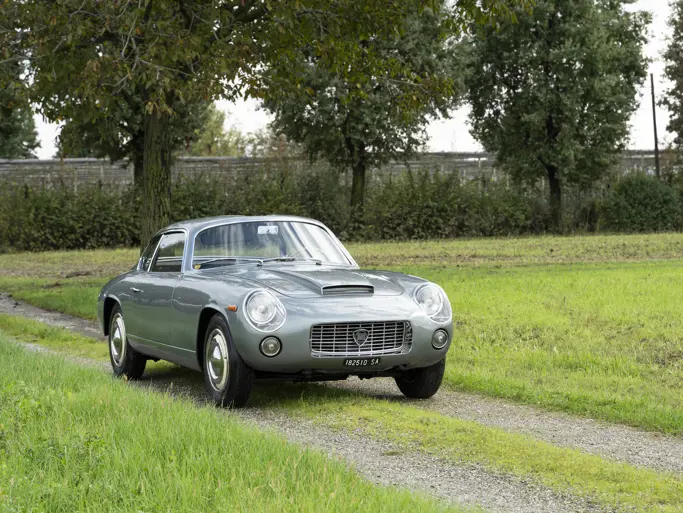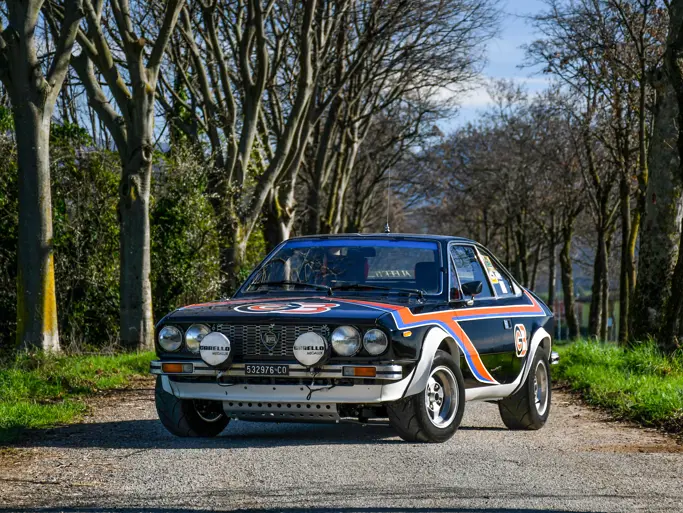195 hp, 2,418 cc DOHC V-6 engine with three Weber carburetors, five-speed manual transaxle, front and rear unequal-length A-arm suspension with coil springs and anti-roll bars, and four-wheel disc brakes. Wheelbase: 92.1 in.
Prior to his death, Enzo Ferrari’s son, Alfredino, had designed a dual-overhead-camshaft V-6 engine for both road and racing use, believing that this powerplant would be ideal for Ferrari to compete against smaller and less expensive offerings compared to their usual 12-cylinder cars. This type of engine was first used by Ferrari in 1967 and unveiled at that year’s Turin Motor Show. Given the name “Dino” to honor Enzo’s late son, the Dino 206 GT showed that Ferrari could compete with the likes of Porsche by producing a smaller car with a lower price, but one that still boasted lots of Italian style, flair, and drama.
Following a production run of 154 of the 206 Dino, Ferrari introduced the updated Dino 246 GT and GTS. Now boasting a 2.4-liter V-6, this engine produced 15 more horsepower over the previous 2.0-liter unit and was noticeably quicker than its predecessor. The new Dino could sprint to 60 mph from a stop in just over eight seconds, leading to a top speed of just over 145 mph. Tipping the scales at 2,394 pounds, the 246 Dino boasted a near-perfect weight distribution, partly in thanks to its mid-mounted engine. As a result, it gave its driver an incredible overall driving experience, one that could only be compared to the car’s breathtaking looks.
This particular “E-series” 1973 Dino 246 GT was originally finished in a very unique color combination of Marrone Dino Metallizzato over Sabbia. While its early history is not known, the car was delivered new to the United States and noted as being in the ownership of Lynn Jorgensen of Malibu, California, by 1985. Mrs. Jorgensen owned the car for the next 30 years before it came into the ownership of its current custodian. Under his direction, the car was sent to Fast Cars LTD of Redondo Beach, California, for a full restoration. The car was refinished in its original color combination, and nothing was overlooked in pursuit of bringing the Dino to as-new condition. Total cost for the project was nearly $225,000. Most importantly, receipts detailing the restoration process will be accompanying the sale.
To many tifosi, the Dino is indeed one of Ferrari’s most compelling and exciting models and holds an important place in the marque’s history. Beautiful from all angles and very exciting to drive, a well-restored Dino is a staple of many collections and a car that everyone should sample at least once in their lifetime. Beautifully restored in a highly compelling color combination, the Dino 246 GT presented here is sure to attract lots of attention wherever it goes and will proudly stand out among its peers. For the collector looking for a Dino that is just a bit different, there are no better examples available than this one.
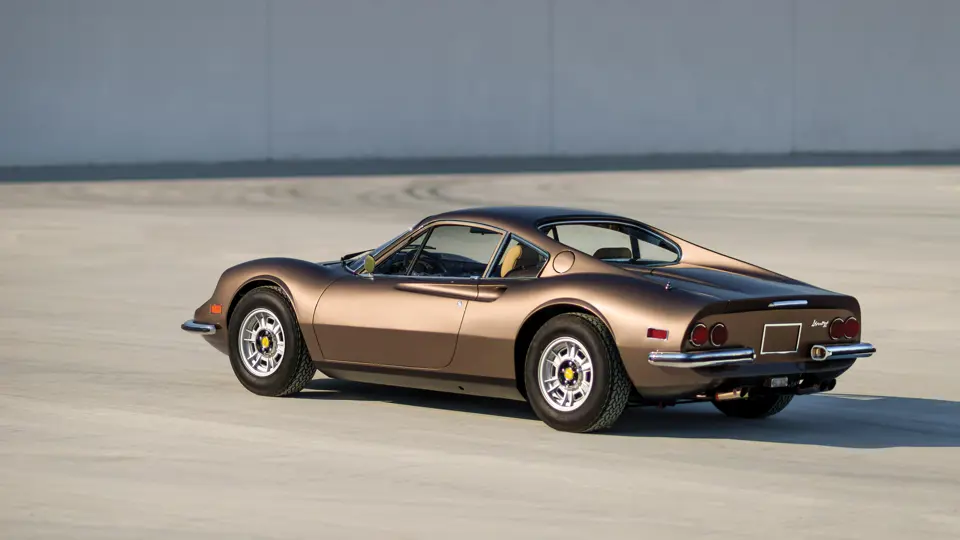
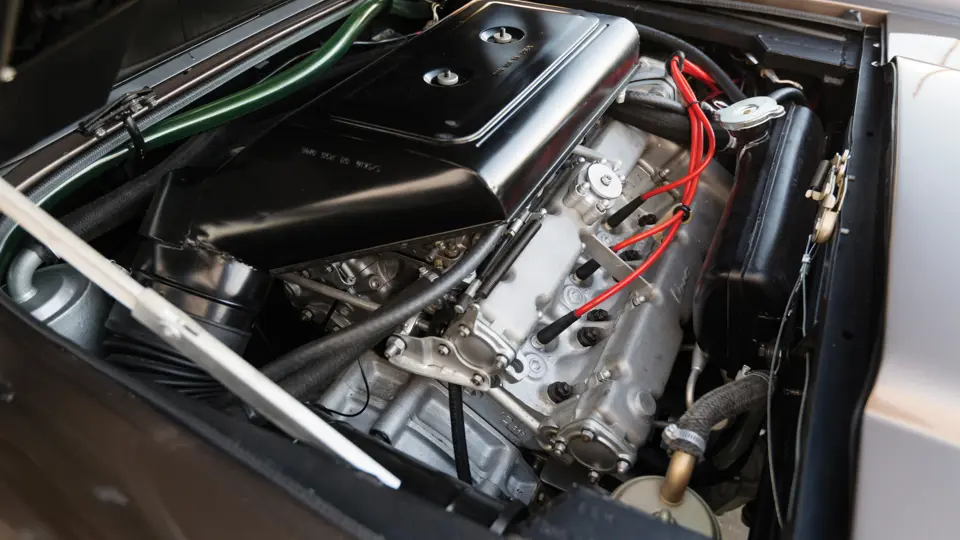
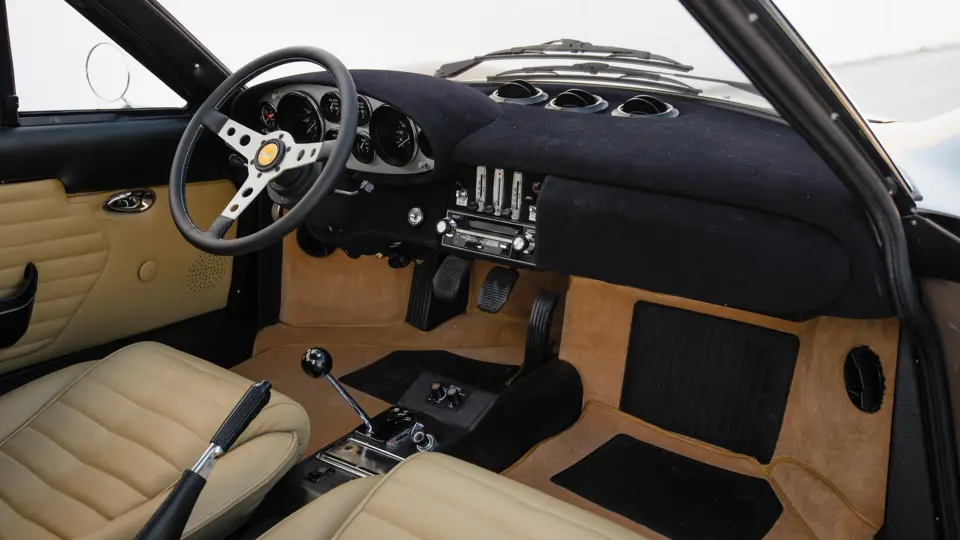

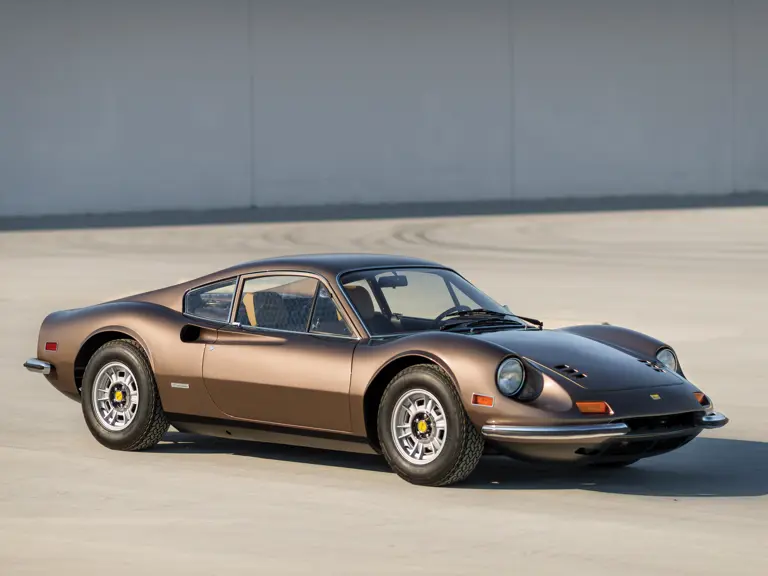
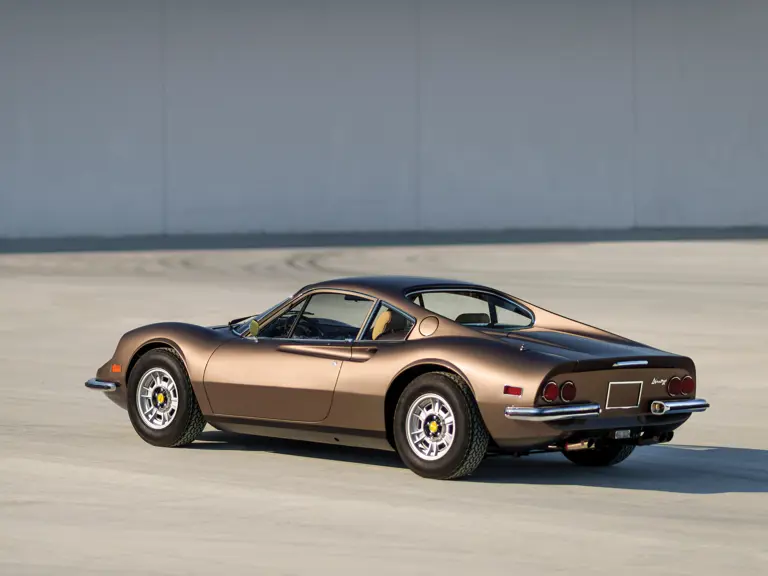
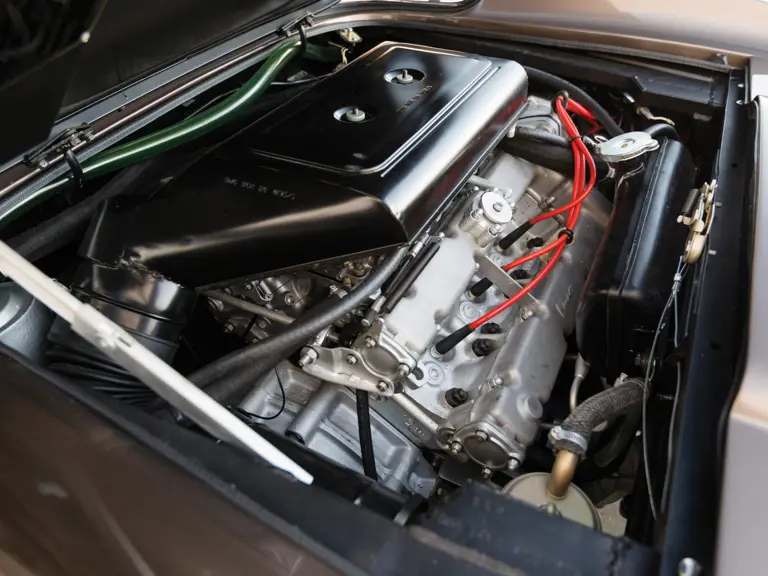
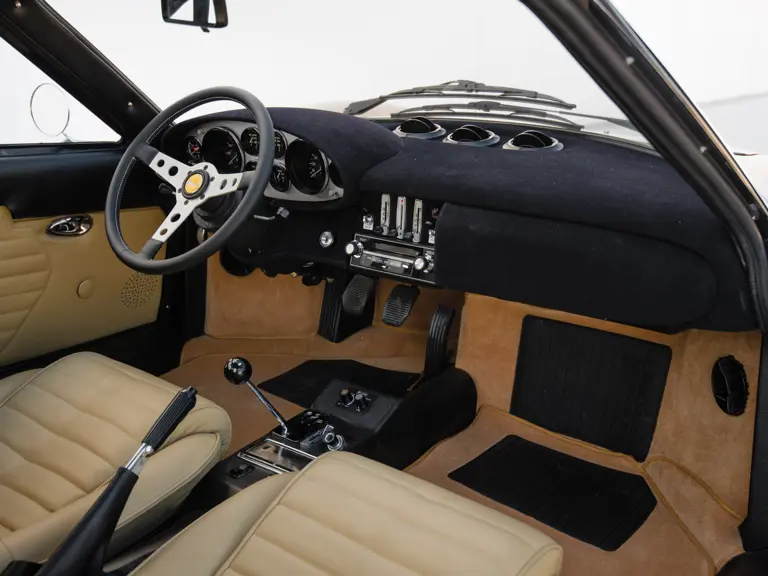
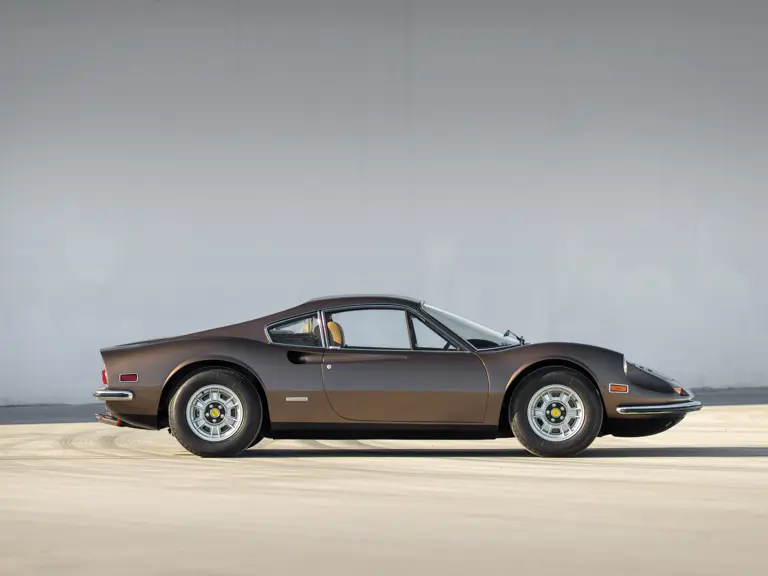
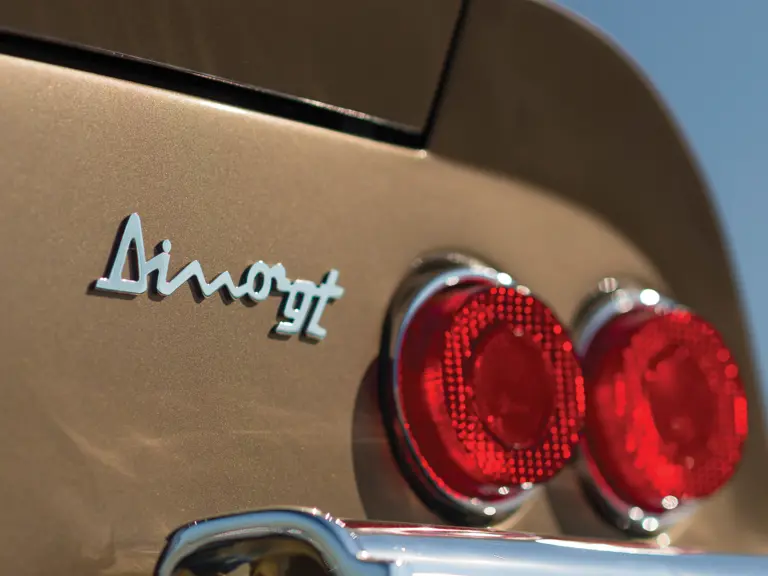
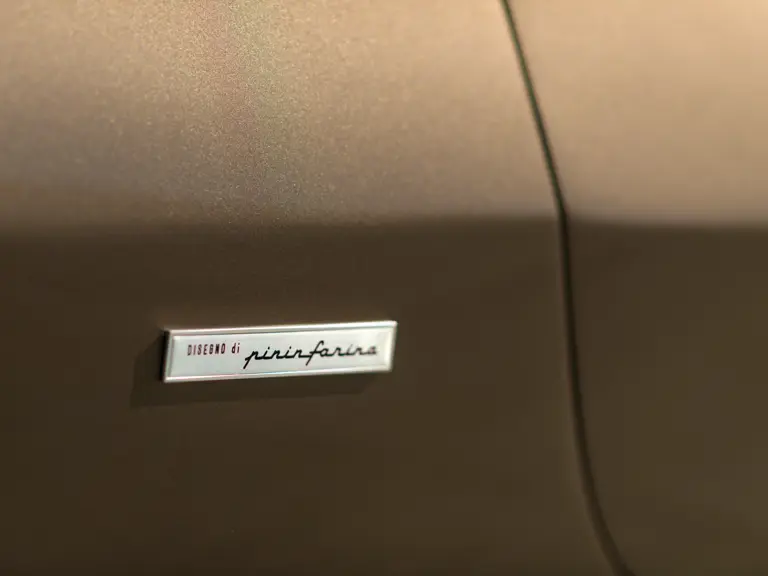
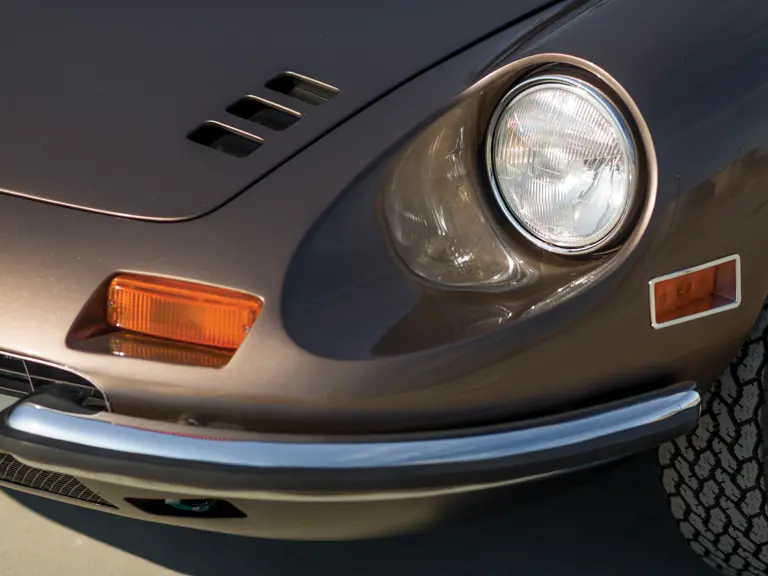
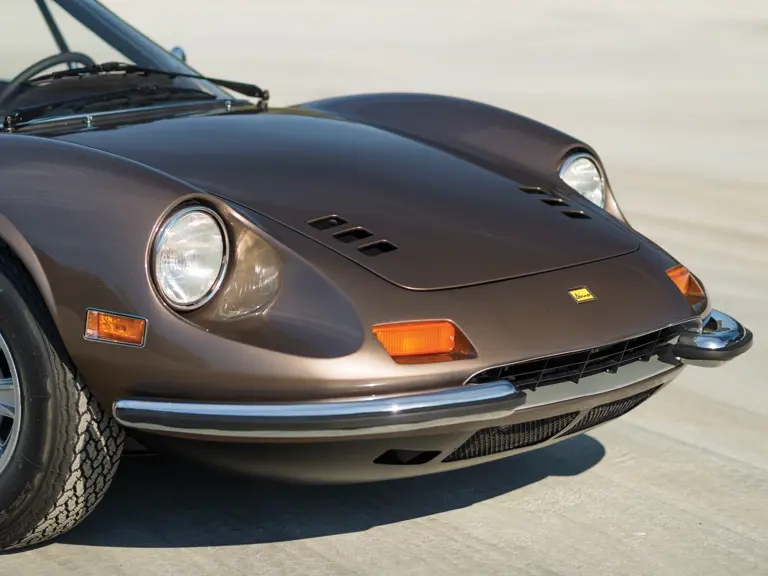
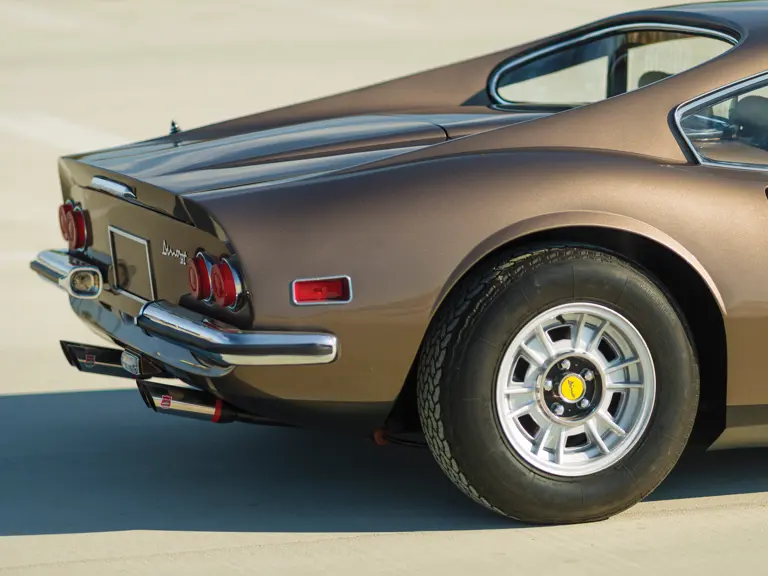
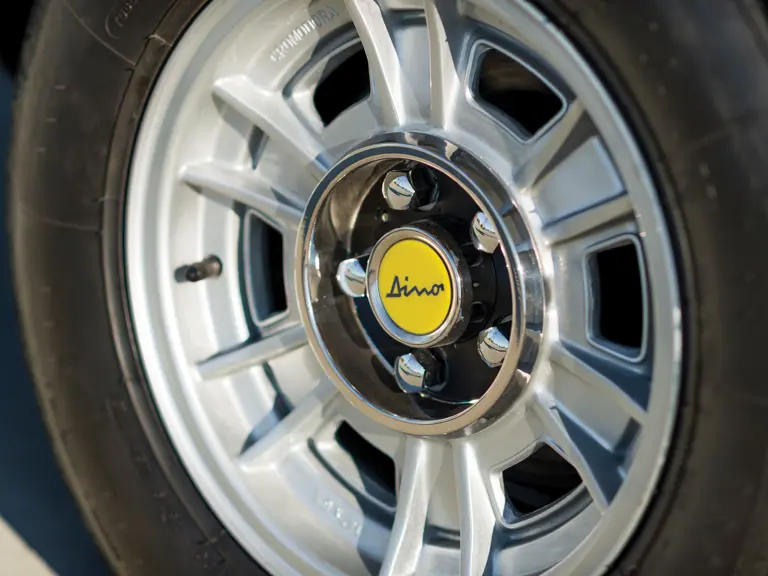

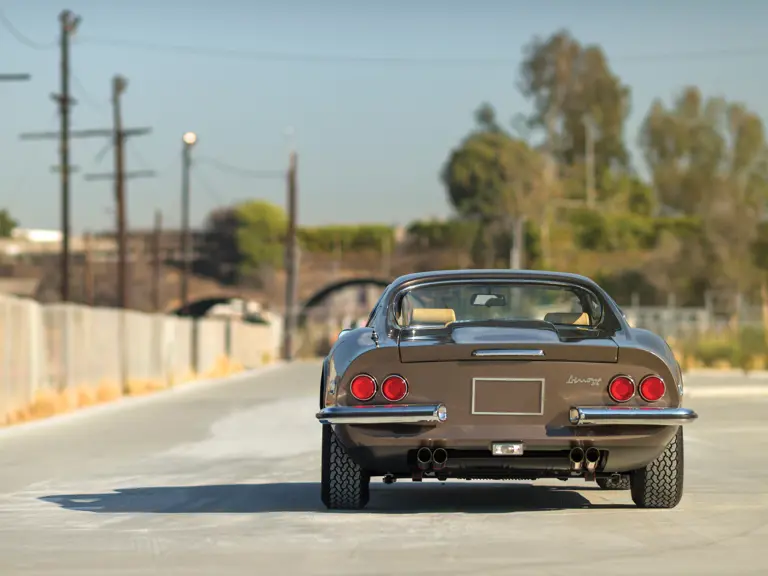
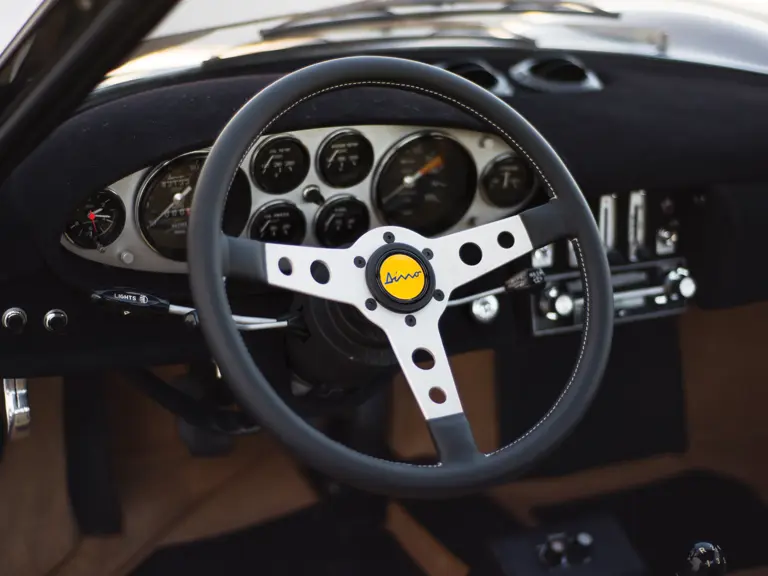
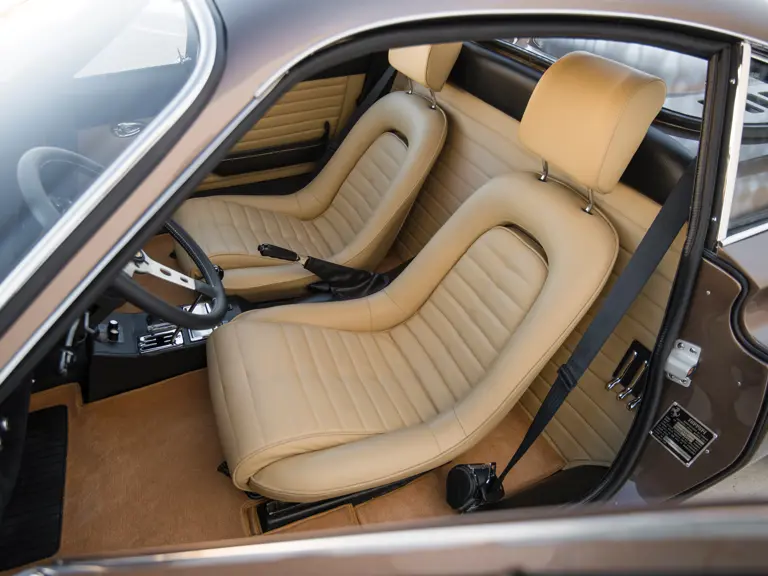
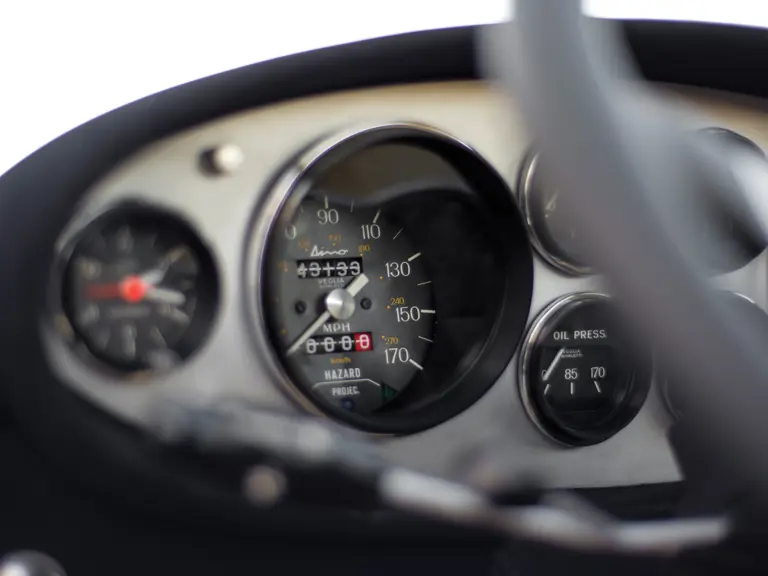
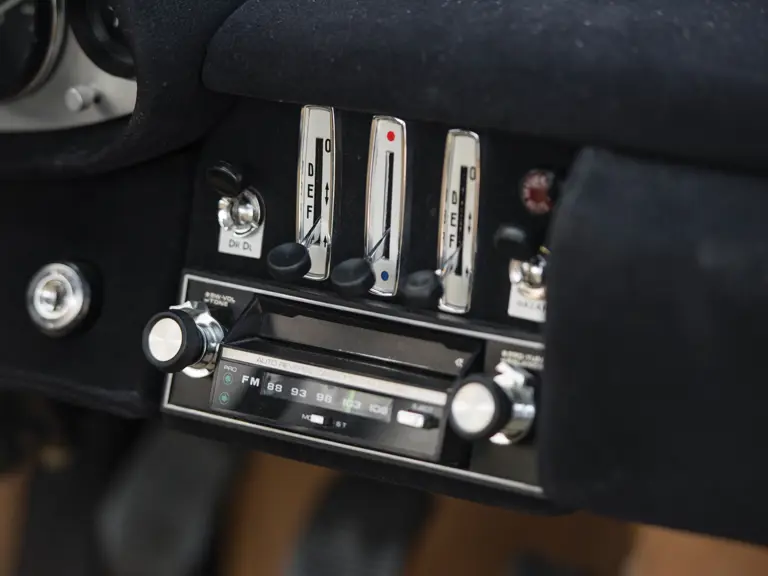
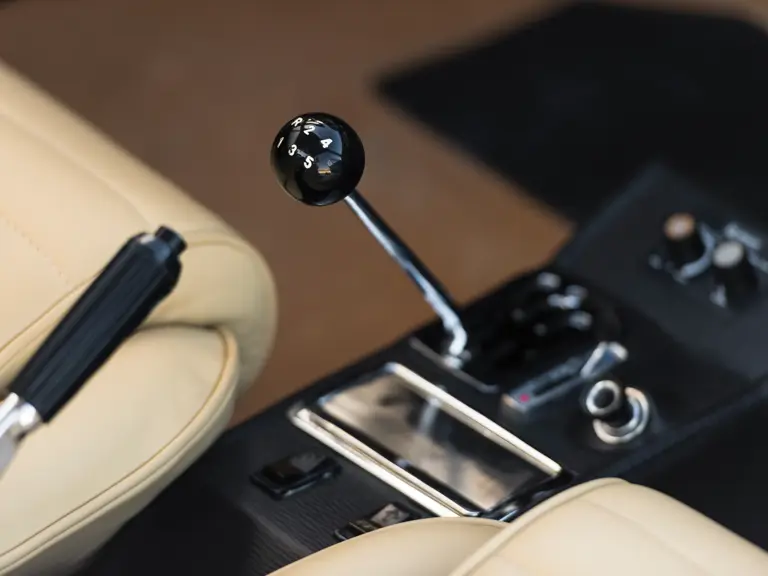
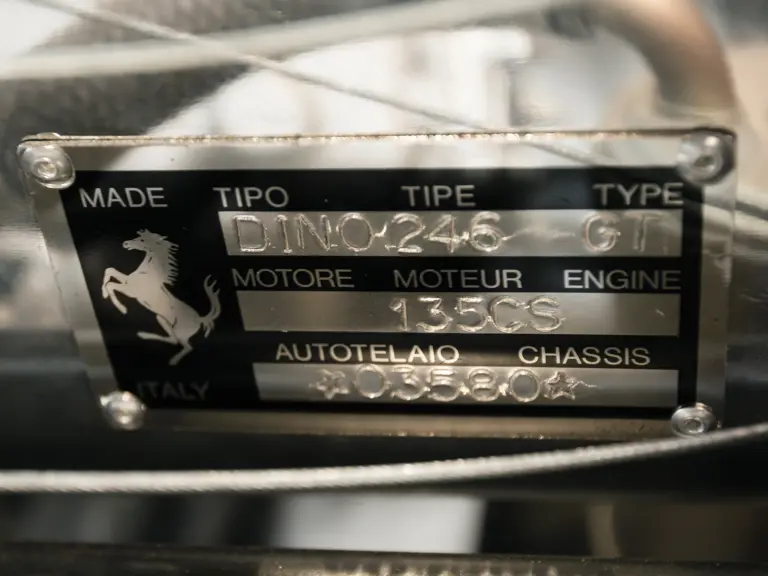
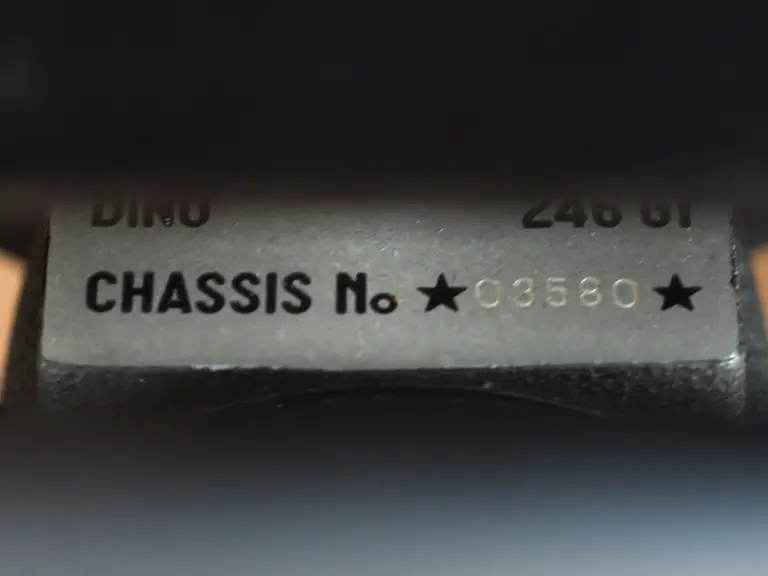
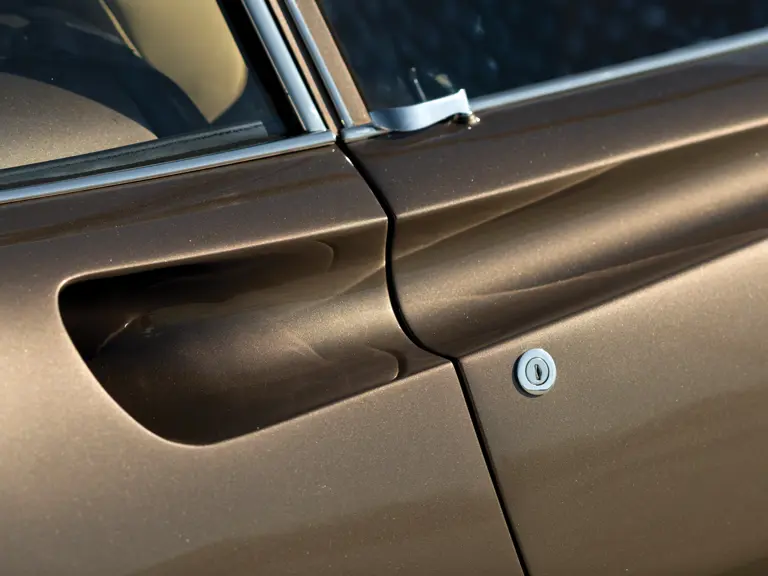
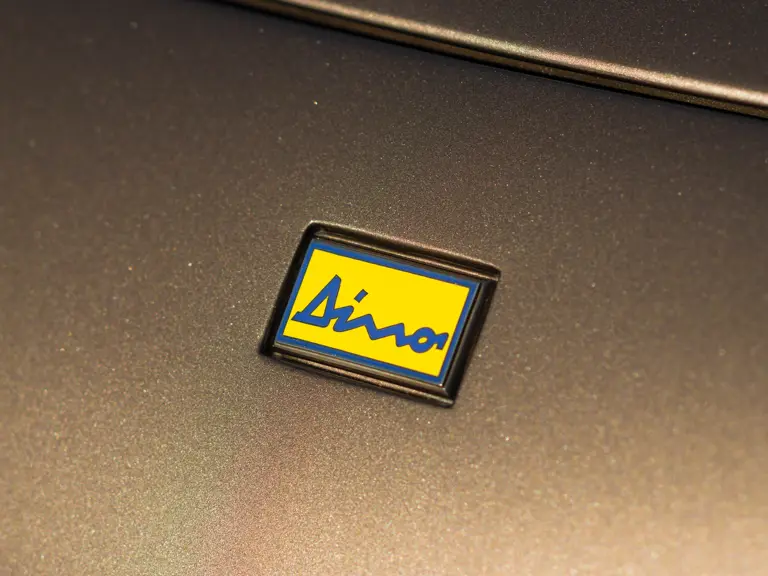
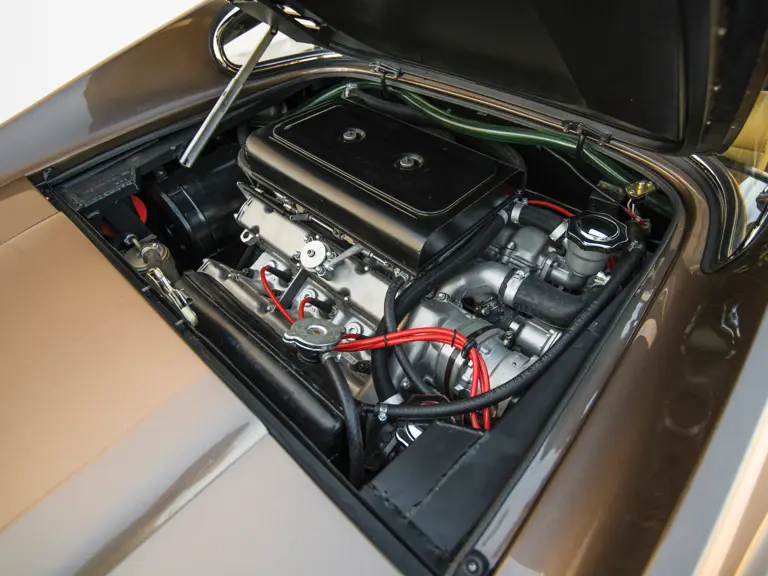
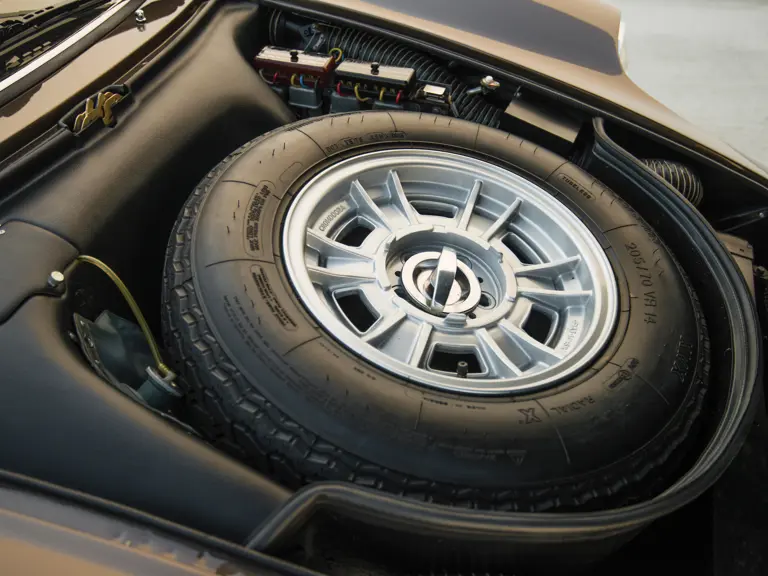
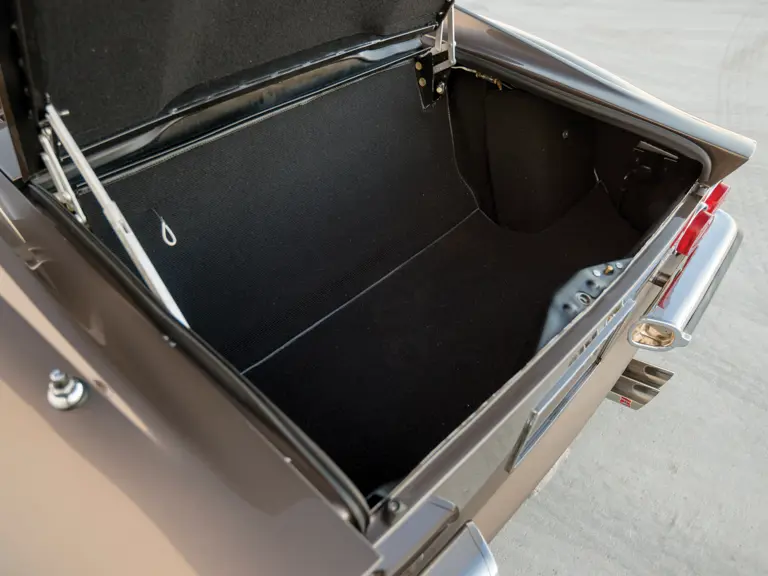
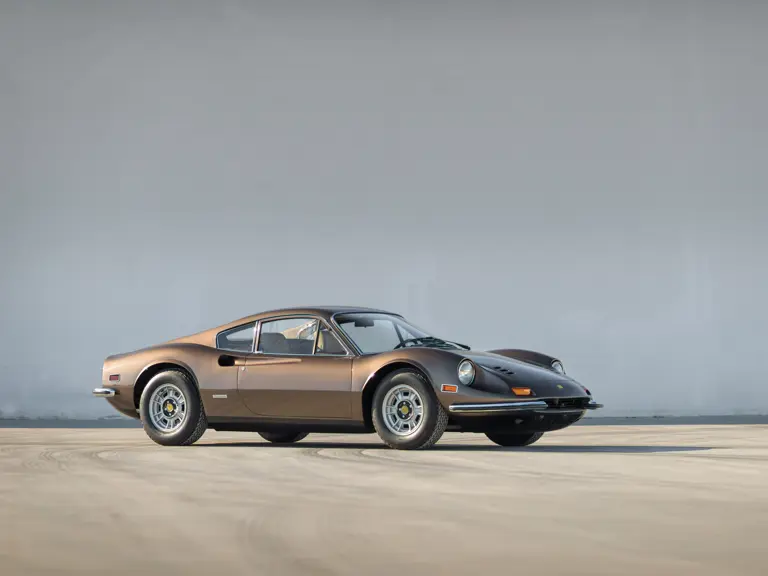
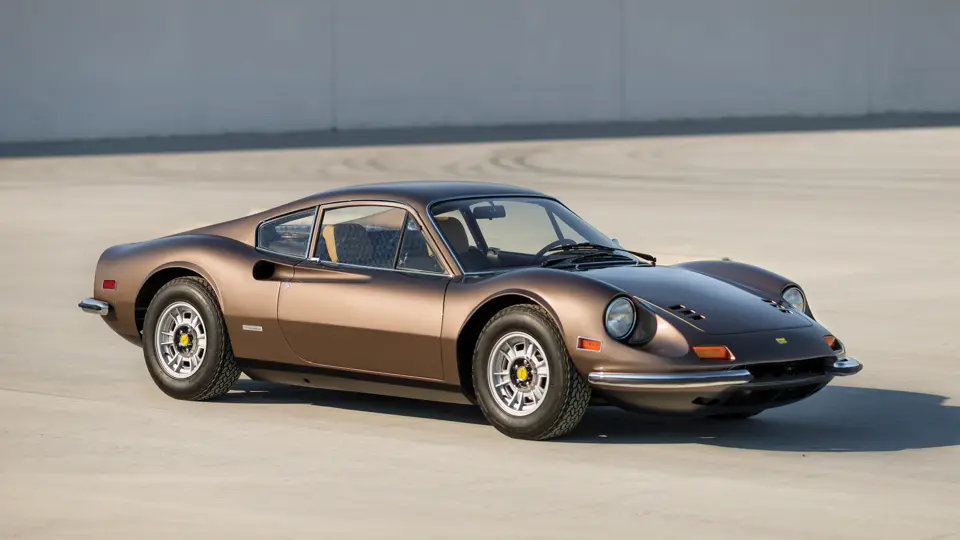
 | Phoenix, Arizona
| Phoenix, Arizona
